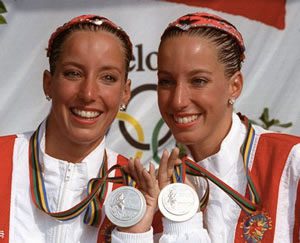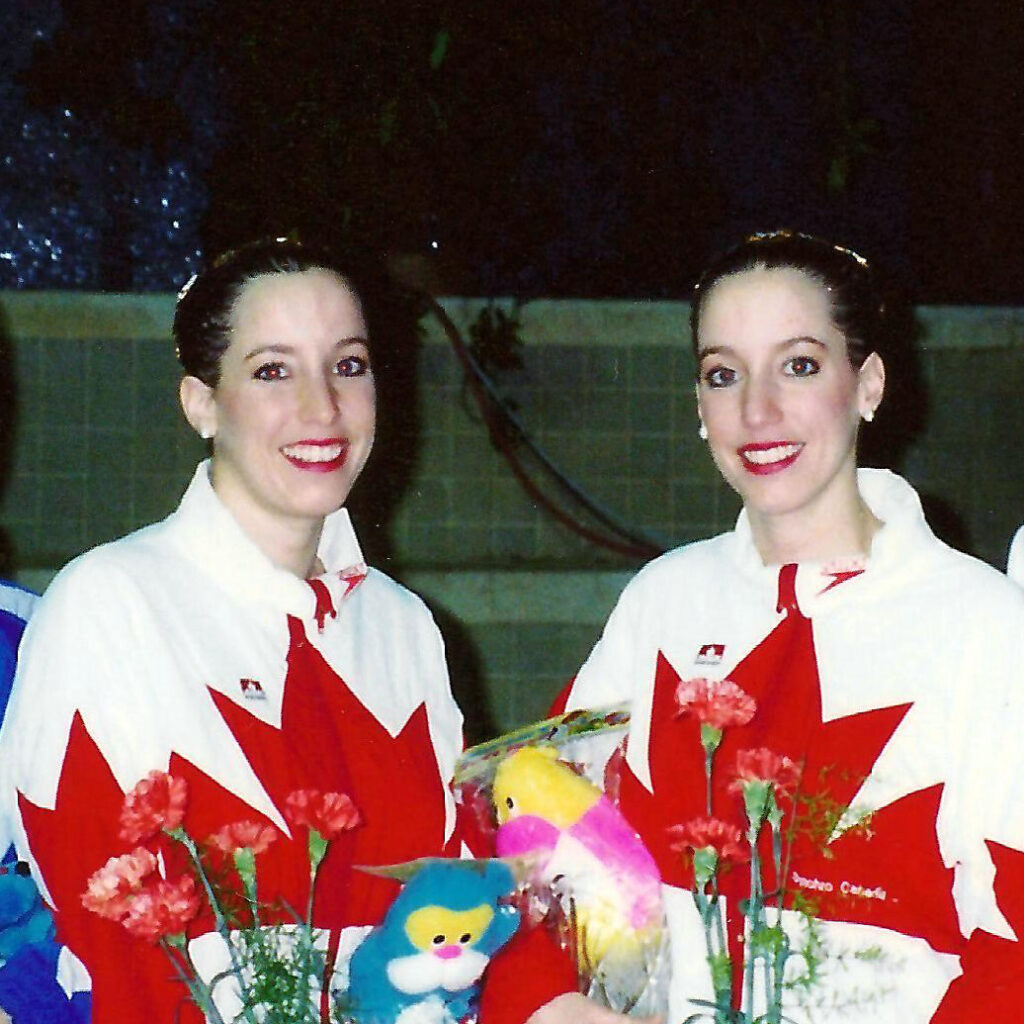HAPPY BIRTHDAY PENNY & VICKY VILAGOS

The information on this page was written the year of their induction.
FOR THE RECORD: 1992 OLYMPIC GAMES: silver (duet); 1982 WORLD CHAMPIONSHIPS: gold (team); 1985 FINA WORLD CUP: gold (team); 1991 FINA WORLD CUP: silver (team); 1981 PAN-PACIFIC GAMES: gold (team); 1983 PAN AMERICAN GAMES: silver (duet), gold (team); 1980, 1981, 1984, 1991 SWISS OPEN: gold (duet); 1st DUET IN THE WORLD TO RECEIVE A PERFECT ‘10’ IN DUET; SEVEN TIME CANADIAN NATIONAL DUET CHAMPIONS.
A pair of overweight, uncoordinated twins is the way they describe themselves in elementary school. But when they were eight years old they discovered synchronized swimming; they had a natural talent for it and they loved it. It was the perfect sport for identical twins, swimming like mirrored images.
Just like another pair of Hall of Fame synchro twins, Karen and Sarah Josephson, Penny and Vicky Vilagos became inseparable in synchro duet swimming. They competed for National team coach Julie Sauvé at CAMO in Montreal. At age 17, in 1980, they were crowned National Duet Champions and expected to perform at the 1980 Moscow Olympics with synchro as a demonstration sport. When the boycott spoiled those plans, the Swiss Open Championships became their milestone as the pair received the world’s first duet perfect score of “10”, just beating out Hall of Famers, Tracie Ruiz and Candy Costie. Their routines were innovative and creative and over the next three years they were among the world’s top performers.

Then, in 1984, they failed to make the Olympic team. After fourteen years of training and striving, they had to accept that their Olympic dream would remain out of reach. They retired from swimming to finish their university degrees and start their careers.
Then, one day in 1990, while watching a synchro competition, they experienced an unexpected sensation and realized their Olympic dream was still alive. “Si on n’essaie pas, on ne le saura jamai!” they say – “If we don’t try, we’ll never know!”
The challenges were immense. They only had two years to train for the 1992 Olympic Games. In addition, they did not qualify for funding, so they had to try this comeback, while working full time jobs and practicing five hours a day each day after work. They also had to fund all their international travel to events while keeping up their grueling schedule, all the while not knowing if they’d even make the team. But they believed in themselves and with a team of four dedicated coaches to push them to their limits, they achieved an unprecedented comeback at the age of 27 and realized their Olympic dream by winning the duet silver medal in Barcelona. This is one of the great comeback stories in FINA history.
